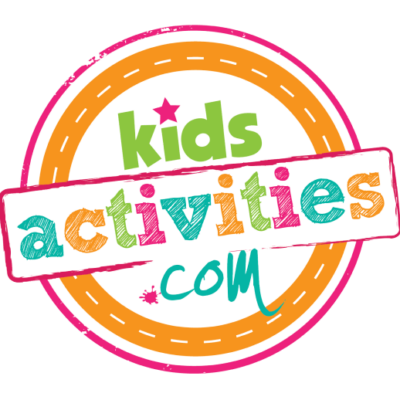What is it about writing that causes some children to groan and throw up their pencils in frustration? Perhaps it is the difficulty of organizing their thoughts logically. It may be the meticulous fine tuning that goes into making each and every sentence sound just right. Or maybe it is the daunting look of a blank piece of paper when an assignment is due the next day.

Clear, coherent writing is an essential skill not only for most of your child's classes, but nearly all jobs that he or she may have as an adult. Developing strong writing skills at an early age strengthens reading abilities and helps children learn to communicate effectively. However, despite its importance, convincing your young student that writing a book report is supposed to be enjoyable may be a challenge.
Here are several writing activities that will help your child develop good writing skills and have a little fun in the process:
- Write letters. Many children's magazines and other resources offer free pen pal matching, where your child will be paired with another of a similar age in another state, or even another country. Ask your local children's librarian for recommendations, or check out the children's magazine section at the library or bookstore for lists of legitimate and safe pen pal services.
Another perfect pen pal? Grandma, Grandpa, an aunt, uncle or cousin. An out-of-town family member (or family friend) may be willing and excited to correspond with your child through letters, and the thrill of receiving mail in return may entice your child to continue writing letters to multiple people.
- Keep a journal. Journaling or writing in a diary provides children with the opportunity to express their feelings or record memories that are meaningful to them. Encourage your child to write about things he or she is excited or anxious about, dreams, friends or things happening at school. Such freeform writing will help your child explore his or her mind and develop a regular (perhaps even daily) writing habit.
- Make lists. Sitting down to write grocery or to-do lists is the perfect time for parents to encourage children to join them and make lists of their own. Creating lists promotes organizational skills and teaches your child to brainstorm. Younger children might enjoy writing lists of their favorite songs, toys, friends or books, while older children may be more interested listing academic, personal or fitness goals they would like to accomplish.
- Play word games. Open any newspaper and you will find crossword puzzles and other word games that children may enjoy. Or, visit the magazine aisle at the grocery store to find entire books of crossword puzzles as well as anagram, cryptogram and other word exercises for children of all ages. These games are perfect for road trips, plane rides or to fill your child's time during summer or holiday break.
- Create a time capsule. Children who love looking at old family pictures or other mementos may enjoy creating a time capsule. First, have your child write a letter to a future self (or presumed finder of the time capsule). This letter may include your child's views on current trends, newsworthy events or may be more personal and discuss your child's favorite things (songs, friends or foods, for example). Your child may also want to put other items in their time capsule: pictures, newspaper clippings, a sentimental toy or another symbolic item. Once the letter has been completed, put it (along with the other items) in a box or container, seal it with lots of tape and have your child write the date that it can be opened on the outside. Hide the time capsule in an attic, garage or other place where it will be easily forgotten. The process will be fun for your child, and may even start a yearly tradition. Years later when the time capsule is discovered during a spring cleaning session or while packing for a move, your child will get a kick out of reading this little piece of history.
As parents, the easiest way to promote writing is to show our children that it is the key to many fun activities. Whenever possible, join your child in a writing project. Set aside time in the day for letter or journal writing, or create a family time capsule together. Remember to arm your child with plenty of writing tools ”pens, pencils, lined and unlined paper, and a dictionary (or picture dictionary for a younger child) ”and make sure he or she has a designated writing spot, such as a desk or other clean, quiet, well-lit area.
If your child continues to resist writing and this aversion is contributing to school struggles, there may be other issues at play that need to be addressed. At Huntington Learning Center we can perform a diagnostic assessment of your child's current abilities, uncovering specific areas that may be hindering his or her writing, reading or other abilities. Talk to your local Huntington representative today to learn how we can help your child.
 Article provided by Huntington Learning Center, which has been helping children succeed in school for more than 30 years. For more information about Huntington, call 1-800 CAN LEARN.
Article provided by Huntington Learning Center, which has been helping children succeed in school for more than 30 years. For more information about Huntington, call 1-800 CAN LEARN. Clear, coherent writing is an essential skill not only for most of your child's classes, but nearly all jobs that he or she may have as an adult. Developing strong writing skills at an early age strengthens reading abilities and helps children learn to communicate effectively. However, despite its importance, convincing your young student that writing a book report is supposed to be enjoyable may be a challenge.
Clear, coherent writing is an essential skill not only for most of your child's classes, but nearly all jobs that he or she may have as an adult. Developing strong writing skills at an early age strengthens reading abilities and helps children learn to communicate effectively. However, despite its importance, convincing your young student that writing a book report is supposed to be enjoyable may be a challenge.
 Article provided by Huntington Learning Center, which has been helping children succeed in school for more than 30 years. For more information about Huntington, call 1-800 CAN LEARN.
Article provided by Huntington Learning Center, which has been helping children succeed in school for more than 30 years. For more information about Huntington, call 1-800 CAN LEARN.




















0